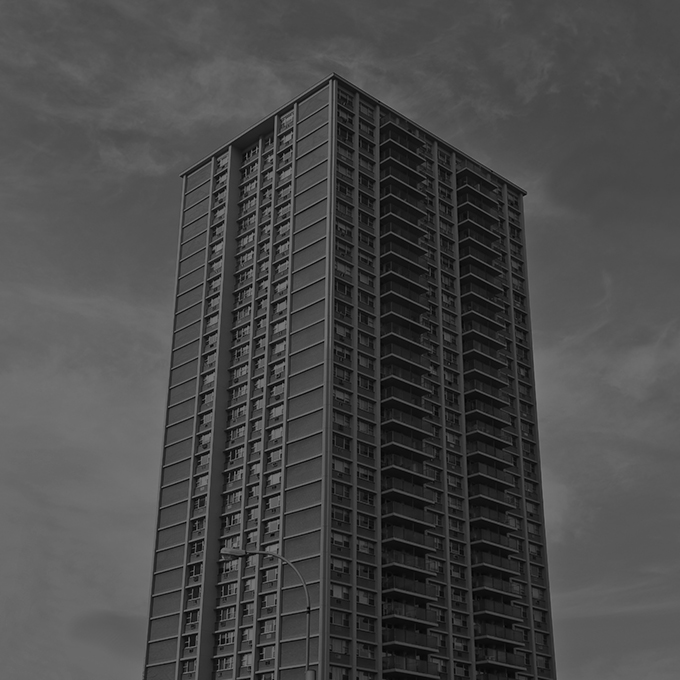COVID AND APARTMENT BUILDING CHALLENGES
REMI - Erin Ruddy
On May 14, the Province of Ontario announced it will be rolling out a 3-phased approach to reopening the economy. For multi-res operations, how will the uncharted journey unfold?
To date, no two provinces’ relaunch plans have looked exactly alike, and as one of the two hardest-hit provinces in Canada, Ontario’s restrictions have been slower to lift. With the state of emergency now extended to June 2, Premier Ford says progressing to the next stage will be based on a range of criteria, including a consistent two-to-four-week decrease in the number of new daily COVID-19 cases. In other words, all businesses preparing to resume operations must be diligent about following strict health and safety guidelines, and remain focused on making risk mitigation the top priority.
“The province has created over 90 documents setting out detailed health and safety protocols to be followed in relation to the permitted activities.”
To steer reopening businesses in the right direction, each phase of Ontario’s plan is accompanied with multiple documents related to protecting the health and safety of workers. But for multi-res operations, it’s not just workers who are potentially facing exposure – it is each and every resident and visitor who steps foot onto the property.
“The clear risk of reopening multi-res operations is that regardless of whether the recommended regulatory and suggested protocols are followed, if a worker, resident or visitor to the building contracts COVID-19, the landlord will likely be the target of a lawsuit alleging that he or she was at fault and therefore liable for damages,” warns Joe Hoffer, Cohen Highley LPP. “That being said, there are steps that can be taken to avoid this outcome.”
For starters, Hoffer can’t stress enough the importance of following the recommended protocols for each component of the 3-phased reopening.
“The province has created over 90 documents setting out detailed health and safety protocols to be followed in relation to the permitted activities,” he says. “The onus will be on landlords to research those documents; accurately determine which protocols apply to which activity; ensure the protocols are communicated to workers and occupants at buildings; and, ensure that there is compliance by workers and residents with those protocols…leaving a paper trail at each step to lay the groundwork for a defence in future potential legal action.”
Naturally, it’s the smaller landlords with limited resources and those unpracticed at risk mitigation who will have a harder time adjusting to the “new normal.” Hoffer advises anyone in this situation to step up their efforts immediately.
“This can be done by designating staff members to develop and implement COVID-19 compliant reopening policies – including staff training – which are key components of a risk mitigation process. In turn, everything should be rigorously documented,” he says.
Another challenge for multi-residential building operators will stem from gaining compliance from workers, staff, residents and visitors in terms of their commitment to following health and safety protocols. As part of Ontario’s proposed Phase 1, workers will be permitted to re-engage in multi-residential construction, maintenance and repair, painting, cleaning and pool maintenance. To address this, Hoffer advises landlords who use the standard industry lease (or other professionally drawn leases) to introduce new rules that set out the protocols tenants and their households must follow during the reopening process.
There is no doubt that the new normal multi-res operations are about to encounter will come with substantial administrative burdens. Similar to the government, Hoffer says landlords must turn their minds to the implementation of measures that are designed to protect the health and safety of all persons at their buildings.
“The establishment of clear rules for health and safety and the implementation of protocols together with the use of waivers provide mechanisms for mitigating risk,” he says. “If you require legal assistance in developing an appropriate set of COVID-19 policies, our legal team can help; otherwise, we wish you all the best with risk management and surviving the “new normal.”

COVID AND APARTMENT SALES - 1st Half 2020
The Apartment Group
We have all heard about COVID and its effect on the residential housing market - has the same held true for the Apartment Investment Market here in the GTA? Since March of 2020 and until most recently things have been in a lock down shut town snails pace sort of vibe in the overall investment market - whether real estate or stocks. Social distancing and protocols have made showings and inspections much more challenging but realtors, lawyers and investors etc. were still looking for deals but at a much reduced pace and lower sense or urgency. Things just took longer to do - but in the end they did get done.
In the first half of 2020 (H20) in the GTA, there were 26 apartment deals completed for a total of around 2,435 suites. From a dollar perspective over $500MM worth of apartments sold in H20. This is almost 50% LOWER than deals and sales which occurred in the first halves of 2019 and 2018. For example, in H19, three were over $1.1BB in sales completed with 52 deals and 4,200 suites. Similar for 2018. That said 2018 and 2019 were record breaking years for apartment sales in the GTA. That said a 50% drop is still significant.
Going a bit further back to say between 2010 to 2017, the first half stats were much similar to that of H20. Generally speaking in those years sales volume was around $300-600MM per year with 20-30 deals happening. So we can take away that yes COVID has reduced the volume of deals in the last 2 years but overall the volume is really considered "normal".
In terms of pricing and value H20 saw average prices at around $230,000 per suite which is down slightly from 2019 at $265,000 per suite. However, cap rates have remained flat at around 3.5% over the past 18 months. Demand is still strong and there is a lack of supply. As well interest rates have come down significantly over the past 8 months.
COVID AND APARTMENT RENTS
CBC - Lisa Xing
The days of cut-throat competition in Toronto for an affordable rental unit — or any unit, for that matter — are gone, at least for now.
The city's rental market seems to be evening out as a result of various factors stemming from the COVID-19 pandemic, according to real estate research firm Urbanation. The organization found the number of new leases signed in the second half of June was down 27 per cent year-over-year, compared with a drop of 41 per cent in May. New listings increased by 74 per cent in the first half of the month.
"If you have the ability to move, it's a good time," said Pauline Lierman, director of market research for Urbanation. "You might have some choice out there coming onto the market." Lierman says the change in the rental market is unprecedented, and the trend could continue into 2021 as more newly built units come online— approximately 20,000 by the end of the year.
The numbers show renters are taking advantage of lower rents and more choice, as the number of leases signed has been rising by a slightly faster pace than that of new listings. This might be due to several factors related to the pandemic, according to Lierman. She cites a slowdown in immigration as a factor, both with permanent residents moving to the Toronto area and students coming from abroad, as well as students who have chosen to move home as their classes move online.
RECENT APARTMENT SALES
1738 Wilson Avenue – North York – SOLD $2,300,000 / $230,000 per suite / 3.3% Cap Rate
This sale consists of a low rise walk up rental apartment building containing 10 suites. The building dated from the 1960's and was in average condition for its age with below market rents. It was heated via HWG system and tenants paid their own hydro. This property was listed for sale for over three years and was purchased by a private investor.
7 Brule Terrace - Toronto – SOLD $4,500,000 / $346,155 per suite / 3.0% Cap Rate
This property is located near Bloor West and Old Mill in a prime residential area. It is a 4 storey tudor style walk up apartment building with a total of 13 suites. The building was constructed in 1937 and sites on 0.18 acres of land. It was fully occupied at the time of sale with below market rents. The property was fully marketed and exposed and purchased by a private investor.
20 Pell Street – Scarborough – SOLD $7,500,000 / $235,935 per suite / 3.0% Cap Rate
This asset comprises of 32 self contained suites in a low rise walk up building dated from 1952. The building had a brick exterior, double windows and flat roof and was fully occupied at the time of sale. It is a basic blue collar style of rental building. It is located in a B class neighbourhood close to the Lake. The property was owned by a Realtor and fully exposed and was purchased by a private investor.
2313 Islinton Avenue – Etobicoke – SOLD $22,400,000 / $280,000 per suite / 3.0% Cap Rate
This property is located in north central Etobicoke and has been in the same ownership for over 40 years. Built in 1964 the building contains 80 suites and is 7 stories with brick extior, balconies, flat roof and double windows. It has surface and underground parking along with elevators. Suite sizes are considered above average and rental upside here was huge. The site is over 2.3 acres. The property was not fully marketed and exposed and was purchased by Golden Equity Properties.
THE APARTMENT GROUP
Together the team has completed over 1,000 transactions and has sold over $5 billion in apartments and development land. Put us to work for you and see the results. NO ONE has sold more buildings then our group. Experience, knowledge and professionalism will insure you get the right deal or the highest price if you are selling.
The Apartment Group is a dedicated team of professionals specializing in the sale of multi-residential investment properties. With over 40 years of combined experience, the team brings together their strengths including strong negotiation and sales skills along with highly technical market analysis and appraisal methods.
We are a boutique Brokerage but have the capabilities of the larger houses without the overhead. We have: an internal database of over 10,500 active apartment and land Buyers; a list of all apartment building owners in the Greater Toronto Area; our web site gets over 50,000 hits a month; we highlight properties for sale through our newsletter which reaches 10,000 investors monthly.
MITCHELL CHANG
President & Owner,
Salesperson
Direct: 416-907-8280
mchang@cfrealty.ca
LORENZO DIGIANFELICE, AACI
Broker of Record, Owner
Direct 416-907-8281
ldigianfelice@cfrealty.ca
JAKE RINGWALD
Salesperson
Direct 416-996-7713
jringwald@cfrealty.ca


